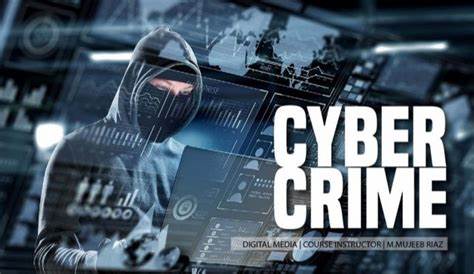
Cybercrime: What is it and how to prevent it?
Any criminal behavior involving computers, electronic devices, or networks is cybercrime. Some cybercrimes aim primarily at harming or impairing computing devices or the physical services that depend on them. Other cybercrimes are motivated by the financial or personal benefit of the perpetrators. Some types of cybercrime try to infiltrate many devices to carry out illegal operations under the attacker’s control or spread malware or illegal material.
Most cybercriminals want to make money from their illegal actions, which has led to the development of a cybercrime economy. Attackers can make money via cybercrime by employing tactics including ransomware, extortion, identity theft, and credit card data theft.
What do hackers on computers do?
Hackers get access to internet-connected devices like computers, tablets, and smartphones to steal, alter, or delete data.
Hackers typically get access to equipment with nefarious intent, much like other burglars do. (White hat hackers, who businesses engage in hacking into their equipment and discovering security problems that need to be patched, are an exception, though.) Hackers may try to steal, alter, or destroy data from your devices, and they frequently accomplish this by installing malware (software used for harmful reasons), which you might not even be aware has been installed. Before you become aware of a break-in, these thieves might gain access to your most important data.
Here are some of the most significant ways cybercrime can harm businesses today. To ensure that your password is safe from hackers, you can check all your account with a dark web scan.
Cost increases
Businesses must take out their wallets to defend themselves from internet thieves. Businesses may spend money on a variety of things, such as:
Cybersecurity tools and knowledge
Notifying parties affected by a violation
Insurance costs
Assistance for public relations
A significant financial strain can also be caused by ransomware, which can restrict employees from accessing IT systems unless the business pays off a hacker. Hiscox estimates that 6% of businesses paid a ransom in 2019, resulting in losses of $381 million. Also, to comply with cybersecurity requirements, organizations might need to retain lawyers and other specialists.
Interruption of Operations
Companies frequently incur indirect costs of cyberattacks in addition to direct financial losses, such as the potential for a significant interruption in business operations and associated revenue loss.
Cybercriminals can stifle a company’s regular operations in a variety of ways, such as by infecting computers with malware that deletes very valuable data or by placing malicious code on a server that prevents users from accessing your website.
So-called “hacktivists,” who have been known to infiltrate the computer networks of government organizations or multinational firms in the interest of drawing attention to a perceived injustice or promoting greater transparency, prefer to disrupt business as usual.
What Distinguishes the Deep Web from the Dark Web?
Every day, millions of average internet users access private information like credit card accounts and email inboxes. In the deep web, these pages are secured by security walls, registration forms, and passwords and are not indexed by search engines. Almost 90% of websites are on the deep web, and many of these are used by businesses, governmental organizations, and charitable organizations. The deep web contains what is known as the “dark web,” a section of the internet that can only be accessed by people who have the Tor browser installed. Although it is entirely legal, most typical internet users will never have to access anything on the dark web.
Hacktivism.
This mashup names a kind of hacking that resembles vandalism. Some hackers might have political motivations for wanting to change or destroy specific websites.
Business espionage.
Hacking has just increased the accessibility of espionage for the average person. Spying was practiced long before the internet era. A corporation can hack into the gadgets of other companies to steal their data and use it to create an unfair competitive edge because a large portion of the world is always connected to the internet.
Varieties of hacking
Some of the motives for computer hackers to enter systems include the following:
Financial offenses
Everyone is familiar with the cliché about someone checking his credit card statement and discovering transactions they didn’t make. These fraudulent transactions are frequently the consequence of computer hackers obtaining your credit card details, checking account information, or other financial information.
Vandalism.
Because hacking has its own subculture, some hackers could feel the need to vandalize specific websites in order to impress their peers. Does it sound absurd? Don’t make the error of not taking this motive seriously; according to Malwarebytes, it’s very typical.
Cybercrime’s Impact on Companies
In addition to the obvious financial losses brought on by cybercrime, cyberattacks can have a wide range of unintended consequences for organizations:
After a security breach, a loss of investor knowledge can lower a company’s worth.
Increased insurance costs and a lower credit rating make it harder to borrow money or raise capital.
Losing sensitive client data can expose a company to fines and penalties as well as legal action from aggrieved consumers or other parties.
Reputational harm and brand image damage.
Communications, public relations, and legal fees.
Create strong passwords.
The key to preventing network invasions is to use strong passwords. It is more difficult for a hacker to access your system the more secure your passwords are. Longer and more complex often equates to more security. Use a password with at least eight characters, a mix of uppercase, lowercase, and computer symbols, and at least one number. Hackers have a variety of methods at their disposal to quickly crack short, simple passwords. Never use known terms or phrases that stand in for birthdays or other personally identifiable information. You can also check your passwords at dark web scan.
Teach cybercrime prevention and security.
Your staff should be aware of cybercrime whether they operate remotely or in the office. Employees are frequently the target of threat actors that use deception to induce them to provide confidential information, share login credentials, download malicious files, click on dangerous links, etc. Employees that receive proactive training are more likely to be aware of attacks and know how to react.
Knowledgeable workers can learn to recognize these attacks and avoid being a victim. Education on cybercrime is essential, especially for remote workers. Employees can swiftly share information in an office setting. When they learn about a hazard remotely, they might be unable to warn one another.







